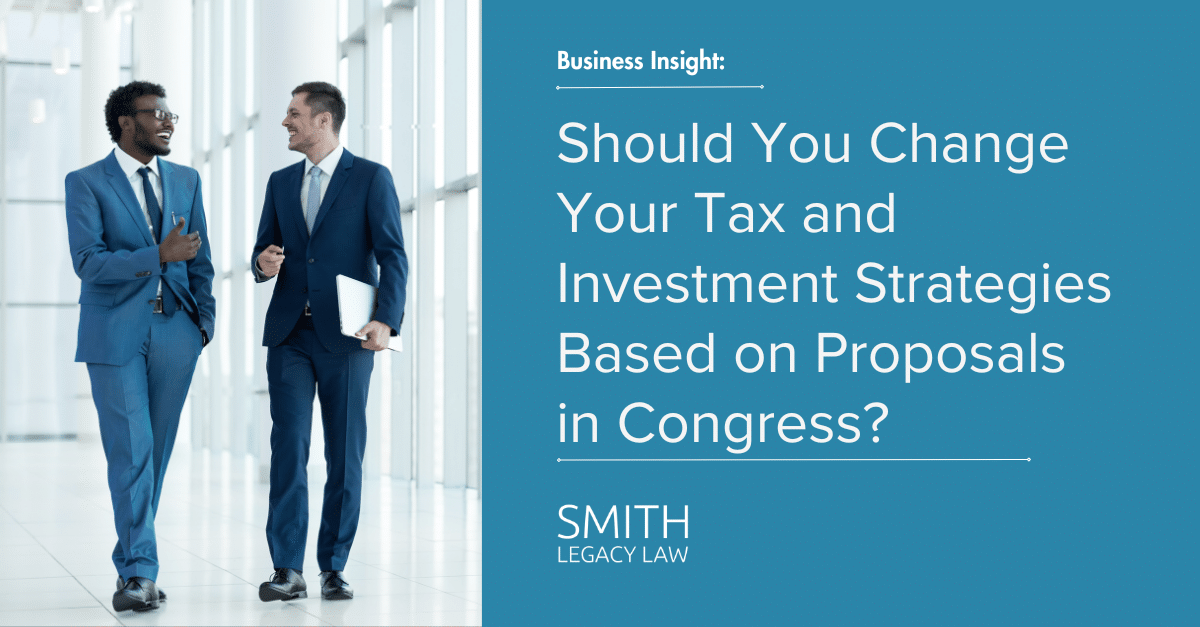When the Build Back Better Act (BBBA) was first introduced last year, it contained significant changes to tax laws that would increase the tax bill of many individuals and corporations in the U.S., particularly for high-income earners. The purpose was to raise money to fund programs addressing childcare, education, healthcare, climate change and other societal problems. While the BBBA Act continues to be in limbo, understanding what could happen is important for planning purposes. However, it is also crucial not to overreact. Changing your tax and investment strategies based on proposals in Congress can put your financial goals at risk. The best course of action is to talk with your advisors about what, if anything, you should do. Our firm can help you assess what steps you should take, if any, to protect your wealth.
History of the Build Back Better Act
The tax law changes proposed in the original bill targeted high income individuals with increases in income and capital gains rates, surcharges on their income, limits on their contributions to IRAs, prohibition on ROTH IRA conversions, and requirements for higher RMDs. For corporations, it proposed raising the tax rate and introduced a graduated corporate rate structure. There were also increases in the trust and estate income tax rates, changes to the grantor trust rules and a reduction in the unified credit to $5 million, with adjustments for inflation after 2017.
Since then, the bill has undergone significant negotiations and revisions with both Democrats and Republicans objecting to various provisions.
Current Status of the Build Back Better Act
Many of the initial proposals in the BBBA were dropped in November 2021. At this point, the chances of the bill’s passage are slim, but several provisions are likely to survive in some form. For example, it seems likely that there will be some increase in tax rates on high income individuals and corporations. In addition, there may be surcharges on trust income. We will discuss the status of these proposals and how to address them in future posts.
Next Steps
Tax, estate and investment planning involves looking at your total situation – your finances, family, health, short- and long-term goals, economic conditions, and other relevant factors. A potential new law is just one factor in this analysis. We recommend that clients do not make dramatic changes to their portfolio or planning based solely on the proposals currently being debated in Congress. Altering your tax and investment strategies should make sense based on the total picture. However, it is important to discuss possible changes with your team of advisors. In some cases, there are recommendations that may suit your situation that are advisable regardless of what provisions may be passed later this year.
Now is a good time to talk with your legal and financial advisors to determine your next steps. We provide our clients with a comprehensive review of their finances and current strategy, assess their needs, and make recommendations for 2022 and beyond.
If you would like a review of your own plan, contact us for a consultation.
